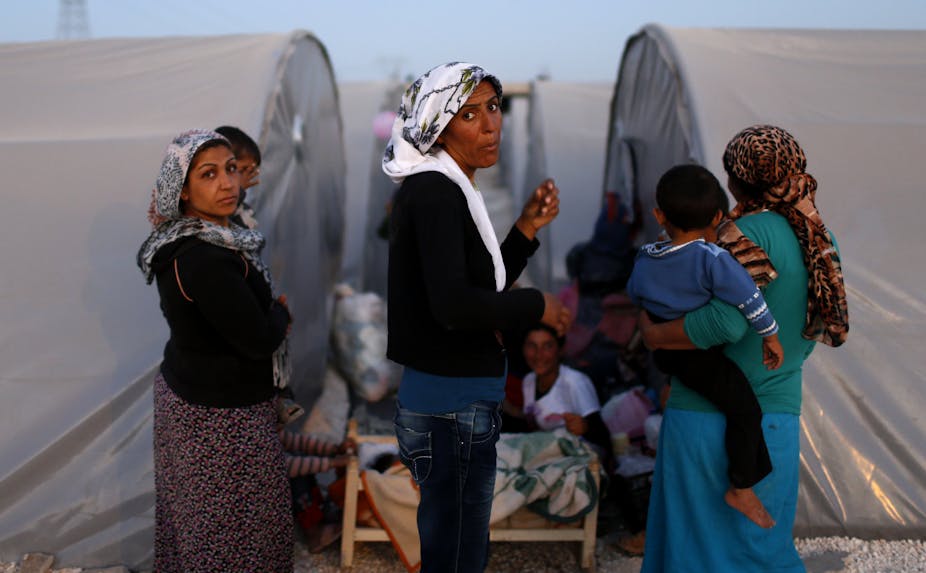The atrocities committed by Islamic State and Boko Haram have rightly caused moral outrage all over the world. But as the latest IS video is released, showing the faces of a group of IS militants, we might also start to think about the legal consequences of such outrages.
Airstrikes have been mounted in Iraq in the hope of trying to stop the spread of IS and Nigerian troops have been deployed to battle Boko Haram, but little has been done to make reparations for the harm these groups have caused to ordinary people.
Both have kidnapped and murdered, and are responsible for the displacement of thousands of people. While air strikes and criminal trials may limit the violence, the victims remain without justice.
There have been calls for the International Criminal Court to investigate crimes by both groups but this would be difficult, given limits on the court’s jurisdiction and its ability to protect witnesses.
Making good
Reparations have been made by governments in the past when ordinary people have been victims of atrocities. The most famous case is probably the US$89 billion paid by the German government to Holocaust survivors.
Victims might get compensation, their property returned, medical help, apologies, acknowledgement of responsibility and guarantees that the crime won’t be repeated. Reparations like these can in fact be a more effective form of accountability than criminal trials, although they generally need to be complemented by trials to ensure that they are not seen as simply buying off victims with “blood money”.
And just like governments, non-state armed groups such as IS and Boko Haram should provide reparations to their victims. It might seem like an impossibility now but it has happened before. The IRA, for example, has played a part in peace building in Northern Ireland by providing information about people who were disappeared during the Troubles.
In Colombia the 2005 Peace and Justice Law required members of paramilitary groups to contribute their assets, including cars and holiday apartments in Belize, for reparations to victims. In return, their sentences were reduced. FARC has also proposed reparations to its victims as part of peace negotiations with the Colombian government.
IS and Boko Haram may seem beyond the pale, but for a long time FARC and the IRA were also terrorist groups with no political legitimacy. What happened later shows that non-state armed groups can be encouraged to engage with reparations to publicly acknowledge the harm they have caused and to alleviate the suffering of victims.
For the time being at least, IS and Boko Haram believe that their political goals are best achieved through violence. A day might come when they are forced to the negotiating table, at which point reparations could be suggested. And if they are not willing to hand over their money to victims or apologise creative tactics will be needed. That could mean seizing their assets in foreign countries or confiscating the resources of those companies that provide them with weapons, in the absence of political negotiation.
At the very least, if no resources or reparations are forthcoming from non-state armed groups, the state should ensure all individuals within its jurisdiction have access to an effective remedy, including reparations. While it may seem unfair that the state should be responsible for redressing the harm caused by groups outside its control, the needs of the people harmed by massacres and executions should be paramount.
The International Criminal Court has its own Trust Fund for Victims to provide interim assistance to victims of international crimes and it may be worth replicating such a system for the victims of IS and Boko Haram to help them, at least in the short term.
Military strikes are important to protect civilian populations, and criminal prosecutions are vital to tackle senior perpetrators. But reparations are how tangible justice is delivered to victims.
The young girls kidnapped by Boko Haram, the Yazidis forced from their homes by IS and the families of all the people murdered along the way will need all kinds of help if they are to rebuild their lives. Engaging non-state armed groups is not easy, but history tells us it is possible. We should not forget to remedy the suffering of victims who are left with the scars, trauma and poverty of violence such groups.

